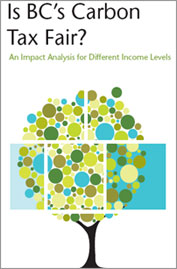This is an archive of news stories and research from the National Union of Public and General Employees. Please see our new site - https://nupge.ca - for the most current information.
'The findings of this study confirm what we've been saying all along.' - Darryl Walker
 Vancouver (5 Nov. 2008) - The British Columbia Government and Service Employees' Union (BCGEU/NUPGE) says a new CCPA study confirms union concerns that the Campbell Liberal government's carbon tax unfairly targets low-income residents, forcing them to pay more than their fair share.
Vancouver (5 Nov. 2008) - The British Columbia Government and Service Employees' Union (BCGEU/NUPGE) says a new CCPA study confirms union concerns that the Campbell Liberal government's carbon tax unfairly targets low-income residents, forcing them to pay more than their fair share.
The study was carried out by the B.C. division of the Canadian Centre for Policy Alternatives (CCPA).
"We desperately need government measures to help lower carbon emissions and help British Columbians make the transitions that are urgently needed to deal with global warming," says BCGEU president Darryl Walker. "This study is a timely assessment that the Campbell government needs to rethink how the carbon tax has been implemented."
The CCPA report, Is B.C.'s Carbon Tax Fair?, looks at how the implementation of the tax on gasoline and other carbon producing energy sources impacts various income groups. While the tax does not hurt or benefit any group in its first year, fairness ends in future years.
After 2009, Walker notes, low-income groups get hammered, paying a larger proportion of their income than other groups. Meanwhile, higher-income earners and corporations benefit most, despite the fact that these groups have the largest carbon footprint.
"The findings of this study confirm what we've been saying all along ? that low-income and working people will pay an unfair price for the carbon tax," says Walker. "It's not the tax itself that's the problem, it's how it's structured that has created so much legitimate opposition."
Walker joins the CCPA in urging the Campbell administration to drop its public pretense that the tax is revenue neutral.
Half of the revenue from the tax should be used to cushion the impact on working people, Walker says. The remaining half should be used to subsidize programs ranging from expanded transit to energy efficient home renovations. NUPGE
